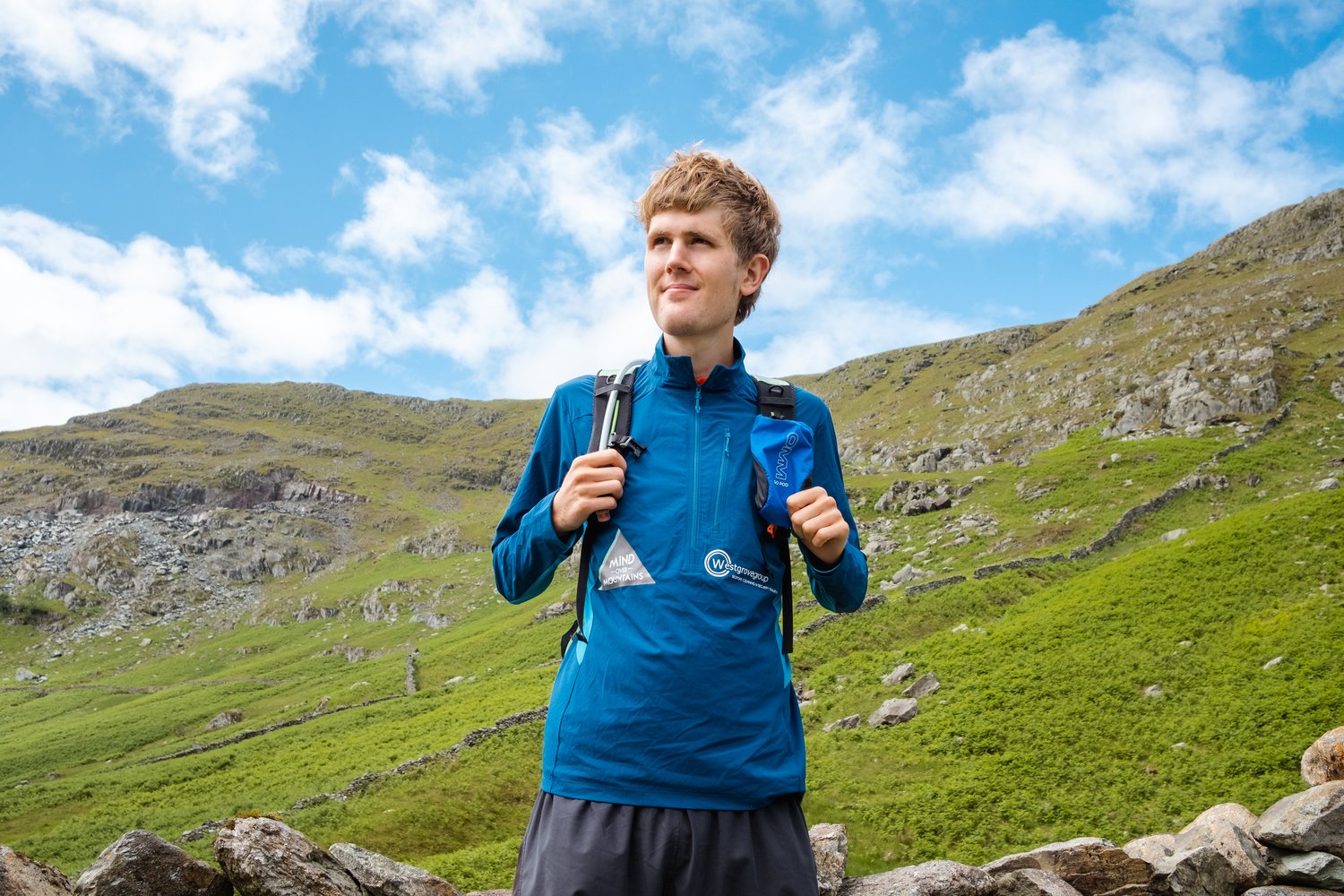Your Cart is Empty
December 03, 2021 4 min read
The benefits of nature for both our mental and physical well-being are limitless. The natural world directly affects positive changes in our entire nervous system and brain. Being in nature can take many forms, such as walking in the woods, listening to birds, watching the flow of a river or stream, or hiking. Spending even a small amount of time in nature and doing something you find pleasant can substantially reduce stress, anxiety, depression and improve overall well-being.
As we underwent the horrors of lockdown during the Covid-19 pandemic, many of us found refuge and joy in nature. A study by the Mental Health Foundation found that during the pandemic, almost half of people in the UK relied on green spaces as a coping mechanism and method of stress release. We had the pleasure of catching up with Alex Staniforth, a record-breaking adventurer, international motivational speaker, author and mental health activist. He talked us through the major benefits of nature for mental wellbeing, and his charity ‘Mind over Mountains’.

Firstly, can you tell me a little bit about yourself and the work that you do, particularly with regards to Mind over Mountains?
I'm an adventurer, endurance athlete, motivational speaker and author, and I founded Mind Over Mountains in 2020 - a charity restoring mental health through outdoor experiences. I'm 26 and now based in Kendal, the Lake District, and spend most of my time running the charity or running in the local fells.
What you do is really inspirational. What inspired you to start Mind over Mountains?
That's kind of you to say! I discovered the outdoors about the age of 13 and it's been the most powerful tool for managing my challenges growing up - particularly epilepsy, stammering, anxiety and bullying. The escape and neutralising effect of being outside, challenging myself, gave me a purpose and a way to fight back. Running in particularly was even more important for coping with depression, anxiety and an eating disorder a few years later. As a young man, it took me longer to access a proper consultation for these challenges through the NHS than it did to cycle and walk 5,000 miles to all 100 UK county tops in 2017. I knew not everyone was lucky enough to have the access to the outdoors that I did. Our vision is to become the 'Natural Health Service' so that everyone has the tools they need to stay mentally well.
In this growing mental health crisis, what are the main benefits of nature for mental health?
It's entirely individual but I think a healthy mind starts with a healthy body, and the benefits of exercise are well-known for reducing stress and producing mood-boosting endorphins. But being in nature also helps to put things in perspective, encourages us to be mindful of our surroundings, and get exposure to daylight (which is thought to be the cause of 'SAD' during winter months). I personally find that it's hard not to feel better after a run, cycle or walk outside in the mountains. Even a few minutes can make a difference.

What are the different types of programs run by Mind over Mountains?
We deliver one-day 'rambles' and weekend retreats, usually in National Parks. We currently work across England and Wales but looking at expanding to Scotland in 2022. Bursaries are also provided for people in financial hardship or difficult circumstances to attend. Our events are open to anyone over 18, regardless of the challenges they're facing.
Could you run me through what usually happens on these programs?
We combine guided hill-walking with 1-2-1 coaching, mindfulness, and counselling to create a safe space for people to 'walk and talk' without judgement. Our groups are generally quite small, no more than 18 people. It's often much easier to talk about things when walking side-by-side than face to face in a room. We have professionally trained coaches and counsellors in the team but mostly it's about bringing together a like-minded group of people to help people reconnect and recharge. On retreats this gives us more time for walking, inspirational speakers, and the chance to go off-grid in amazing locations.
What advice do you have for someone wanting to get involved with the programs?
Please visit our website here and have a look! We are regularly arranging more events and new locations to explore. We know it can be daunting especially if you're currently struggling but we want to reassure people through the process and people often say how they arrive as strangers but leave as friends. We also have virtual check-ins before the walks which help the group to meet each other and reduce any anxieties.

You've been on some amazing adventures including Mt Everest - what drives you to get out and do these things?
For me it's the challenges that make life worthwhile and allow us to live life on our own terms. I've been lucky to learn how fragile life can be. So why settle for Base Camp?
Where has been your favourite place to visit? And what's the place you'd most like to go?
I've been lucky enough to visit Nepal 5 times and it's a truly magical place. Next year I'm hoping to visit the Canadian Rockies. I haven't been everywhere, but it's probably on my list!
A huge thank you to Alex for sharing this with us. You can find out more about Mind over Mountains on theirWebsite andInstagram.
Comments will be approved before showing up.
